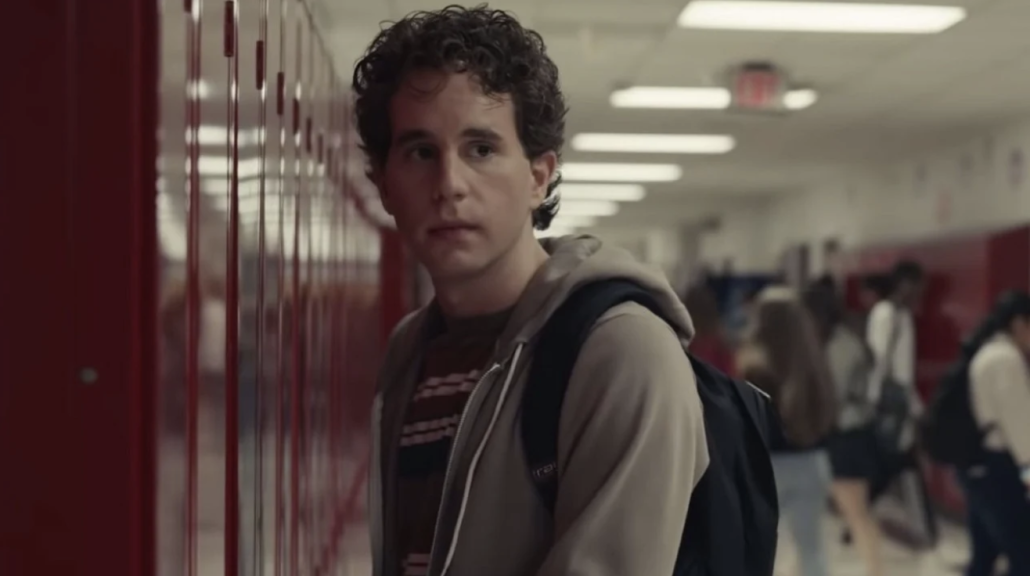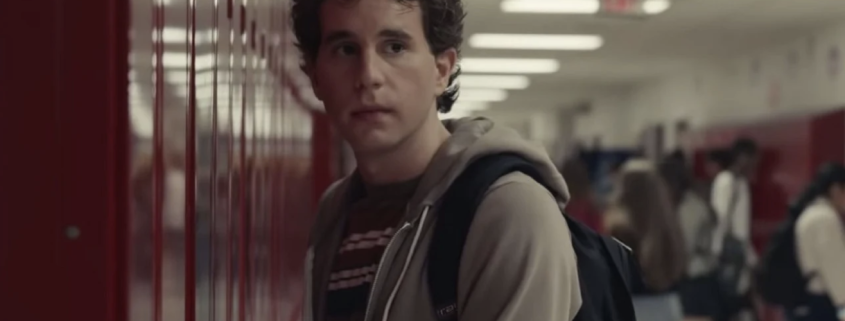‘Dear Evan Hansen’ has a Ben Platt problem

When the trailer dropped in May 2021 for the upcoming “Dear Evan Hansen” movie, Twitter collectively laughed, and many wrote off the film because of its choice to cast a 28-year-old Ben Platt in the titular role of Evan Hansen.
Although Twitter was right to laugh at Platt playing a high schooler, Universal’s “Dear Evan Hansen” is a heartfelt-nostalgia-ridden depiction of the loneliness facing high school students, and well, all of us.
The film follows Evan Hansen, a 17-year-old boy struggling with depression and social anxiety. A miscommunication around a therapy assignment causes a family to believe Evan is their recently deceased son Connor’s best friend. Evan then fabricates an elaborate tale where he is best friends with Connor, who died by suicide, to please the Murphy family (Amy Adams, Danny Pino and Kaitlyn Dever) and, well, himself.
Evan suffers from severe social anxiety, depression and loneliness. For him, the welcoming Murphy family is his chance to escape from reality and to become the person he wants to be.
In a college roundtable discussion hosted by Universal on Aug. 25, the talent and brains behind the film sat down with college students to discuss their adaption of the Tony Award-winning musical.
Despite cutting fan-favorite songs and making relatively notable additions to the popular plot, the movie works. Musical fans may be upset by the exclusion of the touching duet, “Anybody have a map,” but by cutting certain songs, the writer was able to add new additions to the plot, strengthening the overall quality of the film.
In addition to new scenes, the film setting allowed beloved performances to become larger than life. As director Stephen Chbosky and writer Steven Levenson see it, “certain moments [from the musical] begged for a bigger telling.”
The medium of the film allowed Chobsky to create a heartbreaking setup for “Requiem,” a song performed by members of Connor’s family simultaneously experiencing three different and unique depictions of grief. Chobsky heartbreakingly contrasts the Murphy family’s experiences as they cope with their pain through his use of parallel close ups, allowing the viewer to understand the complexity of the family’s pain. Brilliant writing by Levenson and beautiful execution by Chobsky create a heart wrenching and incredibly moving scene.
Smartly, Chobsky’s rendition of “Dear Evan Hansen’’ expanded the character of Alana (Amandla Stenberg). A side character in the original play, film Alana is a complex main character, a choice that can be credited to Levenson. And, in taking on the expanded role of Alana, Stenberg worked with Levenson to do her justice and make sure that she did not turn into the “token sidekick Black girl character.” Stenberg wants viewers to see, “a really comprehensive view of [Alana’s] internal life,” and how for her, “something that was really important was that [Levenson and I] dived into [Alana’s] mental health journey” by watching her struggle with anxiety and seeing her take prescribed medication.
Stenberg is, “really excited to be playing a Black girl who is on medication.”
For Stenberg, Alana is a step toward progressing conversations regarding mental health and medication usage as it is “not something normalized in the Black community,” or at least, as Stenberg specifies, in her family.
Stenberg’s acting is incredible, and she emerges as a shining star amid an all-star cast. Alana’s story is the best difference between the stage and film versions of “Dear Evan Hansen.”
Although the movie has its highs, its Ben Platt problem is too big to be ignored. In the play, Evan is a meek, shy, 17-year-old boy. So, when he frauds a family into believing he is their dead son’s best friend, it is easier to sympathize with him because he is a child suffering from his own mental health issues and striving to fit in.
In the film, Evan does not look like a child. He looks like a 28-year-old man. So, when he commits horrendous acts, you hate him. The audience does not want to sympathize with Evan’s struggles because Evan looks like a grown man who should know better.
Although Platt is a talented actor with a beautiful voice, he was not the right fit for the movie. His presence diminishes the overall emotional impact of the film, and frankly, he should not have been casted. Platt had an incredible run on Broadway (and has a Tony award to prove it). His time as Evan should have ended in 2017, when he stepped away from the play. Bringing him back was a mistake, and Evan should have gone to a much younger actor who could physically do the part justice.
Despite its glaring flaw, “Dear Evan Hansen” is an extraordinary adaptation of the award-winning musical. Its message that “we are not alone” is painfully poignant following a year and a half of social distancing and isolation.

